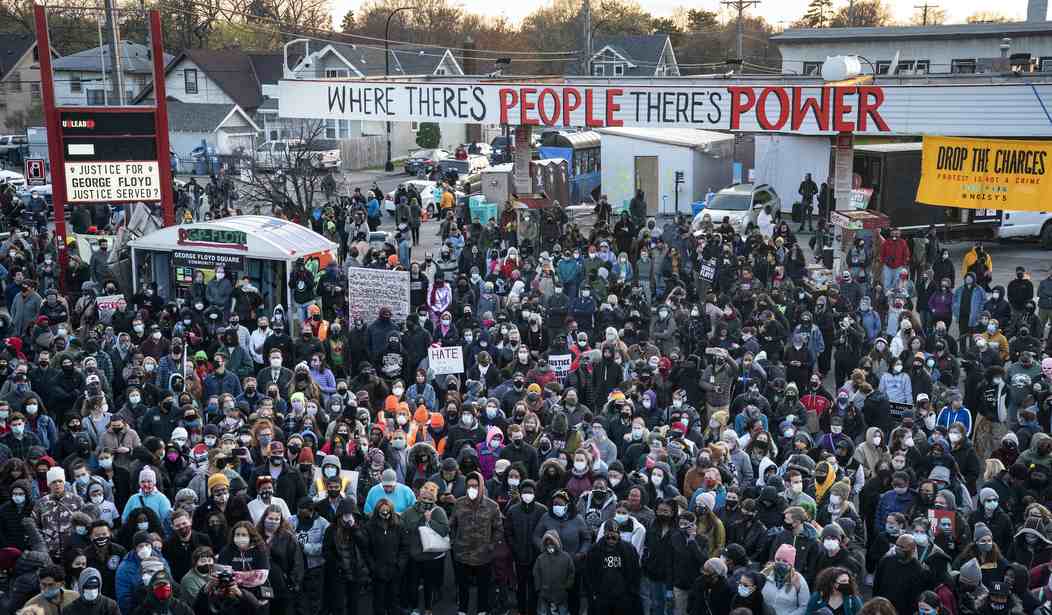Those ballots will count after all, and the result could give the Minneapolis city council the power to disband its police department. A late ruling by the Minneapolis supreme court reversed a lower court’s injunction against a charter amendment that would remove the requirement for the city to fund and staff a police force at levels dependent on population.
The police-abolition activists are thrilled. The people who’d have to live in such a city … not so much:
Minneapolis residents will decide the future of policing for the first time since George Floyd’s death after the Minnesota Supreme Court cleared the way Thursday for their votes to be counted.
The decision — hours before the start of early voting — appeared to bring an end to a legal saga that dogged the city for more than a month and cleared the stage for campaigns to refocus their efforts on persuading residents to vote in a race that is drawing national attention.
“We’re incredibly thrilled that the people of Minneapolis have their democracy honored,” said JaNaé Bates, a spokeswoman for Yes 4 Minneapolis, which wrote the proposal. “The Supreme Court recognized that we were on the right side of the law, we were on the right side of democracy, and we’re going to be [on] the right side of history as we move forward.”
The legal dispute didn’t come over the existence of the ballot question itself, but over its description in the materials. A group of citizens led by a former councilman sued to have the question removed from the ballot entirely, alleging that the city and activists were misleading voters about the nature of the charter amendment. Judge Jamie Anderson repeatedly agreed, even after the city edited the description more than once, including a final time this week.
The deception had begun months earlier. In the wake of the riots, the city council openly demanded the abolition of the police department — not just its defunding. They cut off funds for new recruit classes and made life miserable enough for existing officers that the MPD experienced over 20% losses of staff through retirements, medical leave, and resignations. The same group of citizens who sued over the ballot language had to also sue to get the city to restore the staffing at MPD to meet its charter requirements.
The city council’s push for a charter change started off by honestly being an abolition movement, but that changed as crime skyrocketed in the Twin Cities. The radical abolition idea became unpopular with everyone except the radical progressives on and off the city council. Last fall they started suggesting that eliminating the charter requirement for a police department didn’t necessarily mean they would disband MPD, but that a police department might be part of an entirely reimagined “Department of Public Safety.” That deception crept into the ballot descriptions too, which is why former councilman Don Samuels and other city residents sued to block it.
The state supreme court issued the ruling without an opinion, promising that an explanation would come later. Samuels and his colleagues claim at least some progress in getting the deceiving language out of the ballot:
Shortly after the ruling came down, Don Samuels said he still believes the ballot question is vague but that the trio who brought the lawsuit “achieved significant improvement” throughout the court process.
“This is certainly better than it not going on at all,” said Samuels. “At the end of the day, this was not an attempt to keep the question off the ballot; it was to enlighten the voters by forcing the City Council to clean up the language and be honest about what it will do.”
Now, he said that he, his wife Sondra, Dachis and other opponents of the amendment will work to get out the word to voters about their concerns on the measure.
“We certainly have spent a lot of energy and gotten a lot of attention to the issue of the language, which becomes a cautionary note to all the voters, or many more voters than there would have been if we had not done that,” he said.
This ballot question deserves to go down to defeat. Will it? A year ago, it would have passed by wide margins. After more than a year of vastly increased homicides and carjackings, one would think that some wisdom would have crept into that electorate. I’m pessimistic, however, that those lessons have sunk in at all or penetrated the sloganeering of the progressives that dominate the city. One thing’s for sure — if it passes, this city council will act immediately to disband its police force, or hobble it so badly that the whatever remains will quickly collapse.
Voters will have to live with those results, but it won’t just be those voters. The collapse of an urban police force will get felt in all of the communities that surround Minneapolis, and will likely force the state to take over law enforcement instead, letting the city council off the hook for its irresponsible and juvenile performance. It will become a miserable place to live — even more than it has already become. As H.L. Mencken once observed, democracy is all about getting the government you deserve, and getting it good and hard. That’s exactly what the people will get in Minneapolis and its environs unless common sense prevails in a city where it is all but unknown.








